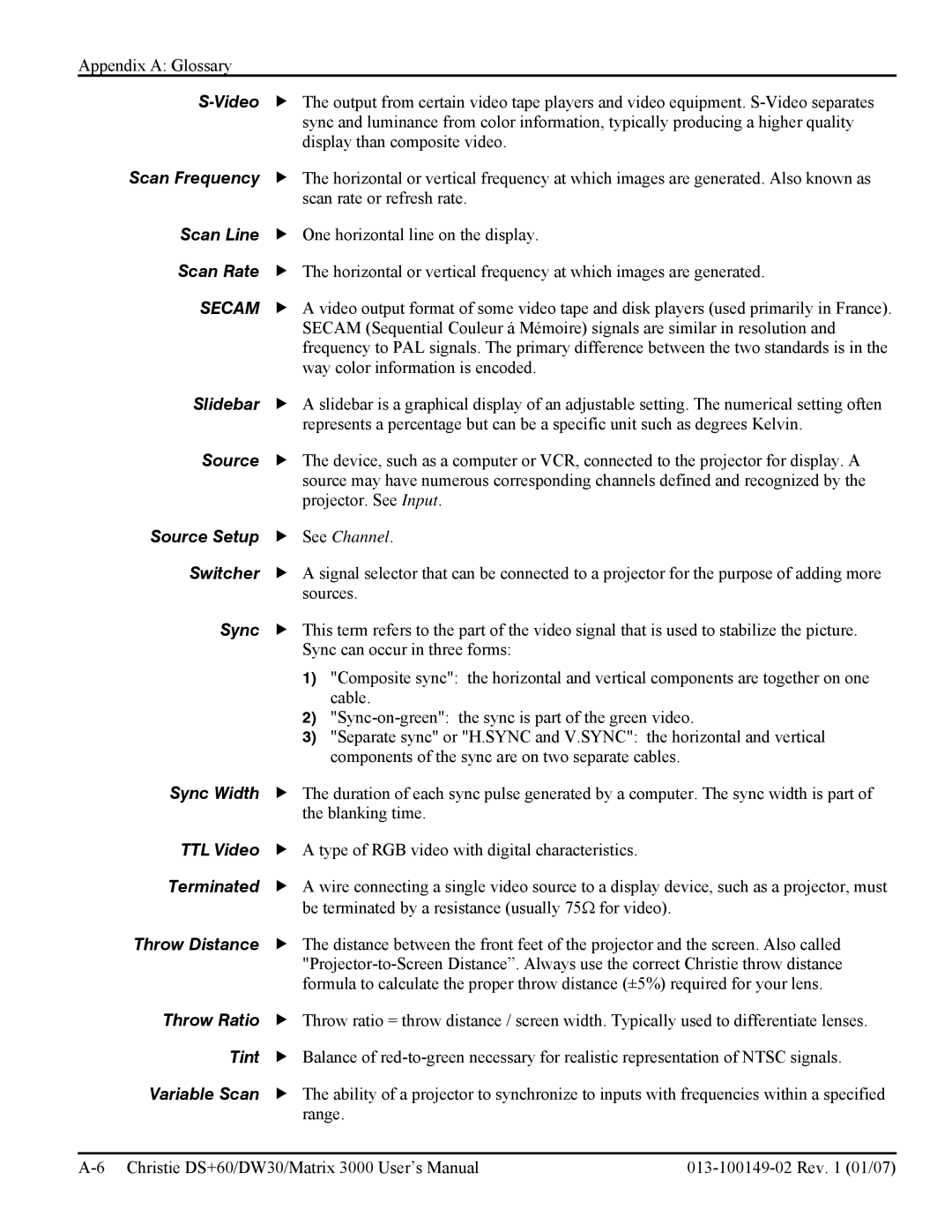
Appendix A: Glossary
| f The output from certain video tape players and video equipment. |
| sync and luminance from color information, typically producing a higher quality |
| display than composite video. |
Scan Frequency | f The horizontal or vertical frequency at which images are generated. Also known as |
| scan rate or refresh rate. |
Scan Line | f One horizontal line on the display. |
Scan Rate | f The horizontal or vertical frequency at which images are generated. |
SECAM f A video output format of some video tape and disk players (used primarily in France). | |
| SECAM (Sequential Couleur á Mémoire) signals are similar in resolution and |
| frequency to PAL signals. The primary difference between the two standards is in the |
| way color information is encoded. |
Slidebar | f A slidebar is a graphical display of an adjustable setting. The numerical setting often |
| represents a percentage but can be a specific unit such as degrees Kelvin. |
Source | f The device, such as a computer or VCR, connected to the projector for display. A |
| source may have numerous corresponding channels defined and recognized by the |
| projector. See Input. |
Source Setup | f See Channel. |
Switcher | f A signal selector that can be connected to a projector for the purpose of adding more |
| sources. |
Sync | f This term refers to the part of the video signal that is used to stabilize the picture. |
| Sync can occur in three forms: |
| 1) "Composite sync": the horizontal and vertical components are together on one |
| cable. |
| 2) |
| 3) "Separate sync" or "H.SYNC and V.SYNC": the horizontal and vertical |
| components of the sync are on two separate cables. |
Sync Width | f The duration of each sync pulse generated by a computer. The sync width is part of |
| the blanking time. |
TTL Video | f A type of RGB video with digital characteristics. |
Terminated | f A wire connecting a single video source to a display device, such as a projector, must |
| be terminated by a resistance (usually 75Ω for video). |
Throw Distance | f The distance between the front feet of the projector and the screen. Also called |
| |
| formula to calculate the proper throw distance (±5%) required for your lens. |
Throw Ratio | f Throw ratio = throw distance / screen width. Typically used to differentiate lenses. |
Tint | f Balance of |
Variable Scan | f The ability of a projector to synchronize to inputs with frequencies within a specified |
| range. |
